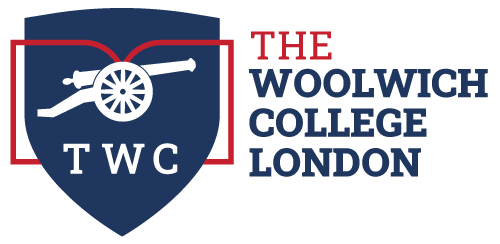Pharmacy Assistant Course Online: Learn the Essential Skills Now
This page on an online Pharmacy Assistant Course is your expert guide about the course. This course provides a robust foundation in both the theoretical underpinnings and practical applications of pharmaceutical practice. Moreover, it’s meticulously designed to accommodate your learning pace, granting you the autonomy to master each module with the support and expertise of experienced instructors at the helm.
Overview of Online Pharmacy Assistant Courses
The proliferation of Internet-based education has expanded into the realm of pharmacy, where virtual learning environments offer a dynamic yet structured path for aspiring pharmacy assistants. Online courses now serve as a feasible alternative to traditional classroom settings, enabling students to acquire critical knowledge and skills without geographical constraints.
These programmes fall under the category of vocational courses—education specifically tailored to equip learners with the practical skills and knowledge required for a specific job or trade. But what is a vocational course? Unlike purely academic qualifications, vocational courses focus on hands-on training and industry-specific competencies. This makes them ideal for students looking to enter the workforce quickly and with confidence.
E-learning platforms for pharmacy assistants typically feature interactive content, real-world simulations, and assessments that ensure understanding and mastery. They underscore the importance of continuous personal development in a field that is both scientifically rigorous and compassion-driven.
Course Contents and Structure
Our Online Pharmacy Assistant Course is meticulously designed to introduce core elements of pharmacy practice. Starting with foundational knowledge of pharmacology, it progresses through medication management, legal frameworks, and customer service protocols, equipping students with skills for a swift entry into the profession.
Scaffolded learning ensures a comprehensive assimilation of practical competencies—from dispensing prescriptions to advising customers on over-the-counter medicines. The use of rich multimedia materials further reinforces concepts, ensuring graduates are well-prepared for real-world challenges in pharmacy settings.
Mastery of pharmaceutical terms is crucial to effective communication within the healthcare setting.
With an emphasis on both the theoretical and practical aspects of pharmacy work, students engage with case studies, virtual simulations, and assessments. These methods ensure not only retention of material but also application of knowledge, allowing for the development of critical thinking within a pharmacy context.
Key Benefits of E-Learning for Aspiring Assistants
E-learning platforms offer unprecedented flexibility and accessibility for individuals aspiring to become pharmacy assistants.
- Flexible Learning Schedules: E-learning accommodates diverse timetables, allowing students to balance education with other commitments.
- Accessibility: Courses are available from any location with internet access, removing the need for physical attendance.
- Cost Efficiency: Online courses often incur lower fees than traditional classroom-based education, reducing financial burden.
- Up-to-Date Content: Digital platforms can quickly adapt and update course material to reflect the latest industry standards and practices.
- Interactive Learning Experience: Many e-learning courses employ engaging multimedia content and interactive tools to enhance understanding and retention of information.
- Personalised Pace: Students can progress through modules at a speed that suits their learning style, allowing them to deeply absorb course material.
This modality caters to varied learning preferences and paces, promoting a more individualised approach.
Pharmacy assistant e-learning courses are often rich in resources and support, ensuring comprehensive education and skill development.
Mastering Pharmaceutical Terminology
Grasping the lexicon used in pharmaceutical settings is imperative for effective communication and practice. Pharmacy assistants must navigate through a range of terms, from anatomical phrases to medication nomenclature, ensuring precision in the dispensing and management of pharmaceuticals. Proficiency in this language is not only vital for accuracy but also enhances the capacity to engage with healthcare professionals and patients alike.
A strong command of pharmaceutical terminology serves as a scaffold for a pharmacy assistant’s burgeoning career. Mastery of the specific language and its nuances underpins the seamless execution of daily tasks, bolsters the confidence of practitioners, and promotes a professional environment in which clear communication mitigates the risk of error.
Interactive Learning Modules
Interactive learning modules act as dynamic pathways to absorb critical knowledge. Through engaging simulations, virtual patient interactions, and real-time feedback, learners forge a solid foundation in pharmacy practices, reinforcing their comprehension and retention of essential information.
Each module is meticulously designed to promote active learning. Short quizzes and interactive case studies punctuate the content, gauging understanding and embedding key concepts.
Engagement is heightened with multimedia elements that cater for various learning styles, incorporating visual (diagrams and videos), auditory (narrations and interview clips) and kinesthetic (interactive tasks and simulations) components for a multilayered educational experience.
Modules adapt in complexity to match the learner’s progression. As proficiency increases, so do the challenges presented within the modules, ensuring that learning remains stimulating and aligned with advancing competencies.
These structured modules are especially valuable in environments where direct access to hands-on experience is limited, providing a platform where students can virtually explore common scenarios and tasks typical to the role of a pharmacy assistant whilst receiving guidance from virtual mentors.
Ultimately, these digital experiences serve to bolster a learner’s journey to becoming a proficient pharmacy assistant. Rigorous virtual practice equips them with the skills to navigate real-world pharmaceutical environments with confidence and competence.
Vocabulary Building Exercises
To effectively communicate within a pharmacy context, intricate knowledge of pharmaceutical vernacular is vital. Terms and definitions are progressively interwoven throughout the online pharmacy assistant course, with rigorous exercises designed to cultivate a comprehensive lexical foundation.
Precise diction is essential in the pharmaceutical realm. Segments tailored to expand lexicon encourage retention and proper usage.
Furthermore, interactive flashcards introduce key terminology unique to pharmacy practices, such as pharmacodynamics, contraindications, and bioavailability, enhancing retention.
Pharmaceutically pertinent exercises include matching drugs with their indications and side effects, reinforcing the association between terminology and practical application.
Taking advantage of spaced repetition techniques within the course aids in committing these terms to long-term memory, ensuring that students can articulate complex information with clarity when interacting with healthcare professionals and patients.
Expanding one’s vocabulary goes beyond the mere absorption of words. It involves understanding context, nuances, and the subtleties that differentiate synonyms, culminating in more effective communication within a pharmacy setting.
Practical Skills for Pharmacy Assistants
Effective communication with patients and healthcare professionals is pivotal, necessitating a mastery of patient confidentiality, medication dispensing protocols, and inventory management. Aspiring pharmacy assistants learn to navigate complex healthcare systems, ensuring that prescriptions are processed accurately and efficiently.
Acquired competencies also extend to interpersonal skills, essential for successful patient interaction. Consulting effectively with patients regarding their medications fosters trust and ensures they receive comprehensive support aligning with their healthcare needs.
Prescription Processing Training
Prescription processing is a critical skill, forming the nexus between patient, pharmacist, and healthcare provider.
- Decoding Written Prescriptions: Interpret healthcare professionals’ handwriting and abbreviations.
- Understanding Dosage Forms and Strengths: Familiarity with various medication forms and their appropriate dosages.
- Entry and Verification: Accurate data entry into pharmacy management systems, ensuring error-free prescription assembly.
- Drug Interaction Analysis: Assessing potential drug interactions to maintain patient safety.
- Insurance Procedures: Navigating third-party insurance billing and reconciliation processes.
Skillful handling of prescriptions requires meticulous attention to detail and procedural fluency.
Accurate processing safeguards patient health and upholds the pharmacy’s standing in the medical community.
Customer Service Best Practices
Excellent customer service is paramount in pharmacy operations.
In a hectic pharmacy setting, exceptional customer service becomes a cornerstone of daily activities. From offering compassionate communication to respecting patient confidentiality, these practices are instrumental in cultivating trust and loyalty. Timely responses and clear explanations of healthcare information further enhance the overall consumer experience.
Empathy is a key component in customer interactions.
Pharmacists must adopt a patient-first mindset – be approachable, readily available to answer queries, and committed to resolving issues. Tailoring communication methods to individual needs demonstrates a dedication to superior service, thereby fostering a welcoming environment.
Active listening skills are crucial to meeting patient expectations.
They allow pharmacy assistants to accurately discern patient requirements and provide tailored advice and solutions. Coupled with ongoing professional development, such as the introduction of a new customer service module in our 2023 course, these skills ensure pharmacy teams excel in delivering exemplary patient care.
Certification and Career Advancement
Upon successful completion of an online pharmacy assistant course, participants may obtain certification, delineating a formal recognition of their expertise. This testament of proficiency can substantially enhance one’s eligibility for career progression, potentially opening doors to advanced positions within the healthcare sector.
Holding a recognised certificate often serves as a cornerstone for further professional development, signalling a commitment to continual learning and operational excellence. Skilled certified assistants are well-positioned to ascend to higher echelons within pharmacy practice, given their proven proficiency in essential competencies.
Obtaining Recognised Qualifications
Achieving a recognised qualification is vital in carving out a reputable career in pharmacy assistance. This mark of distinction endorses your proficiency in the domain and bolsters your professional credibility.
By enrolling in an accredited course, you ensure that your certification holds weight with prospective employers. An accredited qualification signifies that the curriculum meets industry standards, thereby guaranteeing the relevance and applicability of your knowledge and skills.
Moreover, such qualifications are often prerequisites for registration with professional bodies. These entities uphold the integrity of the profession by ensuring members maintain high standards of knowledge, competence, and ethical practice.
Navigating the requirements for recognised qualifications necessitates awareness of the educational pathways available. It is imperative to select a programme that aligns with national standards and regulatory frameworks to ensure that your certification is not only valid but valued.
In conclusion, wielding a recognised qualification elevates your professional profile. It is a testament to your dedication to the craft of pharmacy assistance and a solid foundation for a future in healthcare.
Progression Paths in Pharmacy Field
Embarking upon a career in pharmacy opens a myriad of advancement opportunities, each with unique roles and specialisations.
- Certified Pharmacy Technician (CPhT) After gaining experience as a pharmacy assistant, obtaining certification as a CPhT can lead to more responsibilities and advanced roles within the pharmacy setting.
- Pharmacist With further education and training, one can pursue the path to becoming a licensed pharmacist, a professional responsible for dispensing medication and providing essential health advice.
- Pharmacy Manager Experienced pharmacists with strong managerial skills may progress to overseeing the operations of a pharmacy, which includes managing staff, budgets, and inventory.
- Clinical Pharmacist Specialising further, pharmacists can work closely with healthcare teams in clinical settings, participating in patient care, advising on medication plans, and helping to manage complex treatments.
- Pharmacy Informatics Specialist Combining pharmaceutical knowledge with information technology, this role focuses on creating and managing systems to improve patient care through better data management.
- Pharmacy Benefits Manager One may transition into roles involving the negotiation and management of medication plans for insurance companies and healthcare providers, ensuring quality and cost-efficiency.
- Academic or Research Pharmacist For those inclined towards research and education, becoming an academic or research pharmacist involves conducting studies and educating up-and-coming pharmacy professionals. Advancement through the pharmacy ranks demands not only experience but continual learning and professional development.
Indeed, a career in pharmacy is characterised by its dynamic and evolving nature, where lifelong learning is both a necessity and a privilege.
Frequently Asked Questions
Online Pharmacy Assistant Course: Learn the Essential Skills Now
Are you interested in pursuing a career as a pharmacy assistant? Here are some commonly asked questions about our online pharmacy assistant course:
1. What is the duration of the course?
Our online pharmacy assistant course has a duration of the course is 12 months.
2. What topics are covered in the course?
The course covers a wide range of topics including pharmaceutical calculations, medication dispensing, pharmacy law and ethics, customer service skills, and inventory management.
3. Is the course accredited?
Yes, our online pharmacy assistant course is accredited by Pearson. Upon successful completion of the course, you will receive a certificate that is recognized by employers in the pharmaceutical industry.
4. Can I access the course materials anytime?
Yes, the course materials are available 24/7. You can access them at any time that is convenient for you, allowing you to study at your own pace.
5. Is there any support available during the course?
Yes, our dedicated support team is available to assist you throughout the course. You can reach out to them via email or through our online learning platform.
6. What are the prerequisites for enrolling in the course?
Students need to have English and Maths at GCSE level or equivalent (Level 1 qualification) whether this is from the UK or EU. All qualifications from abroad need to be translated into English before the student can enrol
7. How much does the course cost?
The cost of the online pharmacy assistant course is on our website. We also offer flexible payment options to make it more affordable for students.
8. Will I receive job placement assistance after completing the course?
We do not offer this but do offer a reference if required.
9. How do I enroll in the course?
To enroll in our online pharmacy assistant course, simply visit our website and follow the enrollment instructions.




